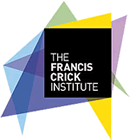Dr A Behrens
No more applications being accepted
Funded PhD Project (Students Worldwide)
About the Project
This 4-year PhD studentship is offered in Dr Axel Behrens’s Group based at the Francis Crick Institute (the Crick).
Every organ harbours adult stem cells which have the potential for long-term replication, together with the capacities of self-renewal and multi-lineage differentiation. These stem cells function in tissue homeostasis and contribute to regeneration in response to injury. In addition, many cancers are caused by transforming mutations occurring in tissue-specific progenitor cells. Moreover, tumours are also organised in a cellular hierarchy, with the so-called cancer stem cells being at the apex (1). Our major focus is to elucidate the molecular mechanisms governing stem cell function.
The mammary gland is composed of a complex cellular hierarchy with unusual postnatal plasticity. The identities of stem and progenitor cell populations, as well as tumour-initiating cells that give rise to breast cancer, are incompletely understood (2).
We recently identified rare progenitor cell population in the adult murine mammary gland marked by the surface protein Lgr6 (3). Lineage tracing analysis showed that Lgr6-positive cells are unipotent progenitors, which expand clonally during puberty but diminish in adulthood. Oncogenic mutations in Lgr6-positive cells resulted in luminal mammary gland tumours. Conversely, depletion of Lgr6-positive cells in the MMTV-PyMT model of mammary tumourigenesis dramatically impaired tumour growth. Thus, our recent work demonstrates that Lgr6 marks adult mammary gland progenitor cells that can initiate tumours, and that Lgr6 idetifies cancer stem cell of breast tumours required for efficient tumour maintenance (3).
The aim of this project is the characterisation of Lgr6-positive breast cancer stem cells, using functional and molecular approaches. We will characterise the molecular differences between cancer stem cells and non-stem cells, with the ultimate goal of identifying novel therapeutic strategies to eliminate breast cancer stem cells.
Talented and motivated students passionate about doing research are invited to apply for this PhD position. The successful applicant will join the Crick PhD Programme in September 2019 and will register for their PhD at one of the Crick partner universities (Imperial College London, King’s College London or UCL).
Applicants should hold or expect to gain a first/upper second-class honours degree or equivalent in a relevant subject and have appropriate research experience as part of, or outside of, a university degree course and/or a Masters degree in a relevant subject.
APPLICATIONS MUST BE MADE ONLINE VIA OUR WEBSITE (ACCESSIBLE VIA THE ‘APPLY NOW’ LINK ABOVE) BY 12:00 (NOON) NOVEMBER 13 2018. APPLICATIONS WILL NOT BE ACCEPTED IN ANY OTHER FORMAT.
Funding Notes
Successful applicants will be awarded a non-taxable annual stipend of £22,000 plus payment of university tuition fees. Students of all nationalities are eligible to apply.
References
1. Kreso, A. and J. E. Dick (2014)
Evolution of the cancer stem cell model.
Cell Stem Cell 14: 275-291. PubMed abstract
2. Inman, J. L., C. Robertson, J. D. Mott and M. J. Bissell (2015)
Mammary gland development: cell fate specification, stem cells and the microenvironment.
Development 142: 1028-1042. PubMed abstract
3. Blaas L, Pucci F et al. (2016)
Lgr6 labels a rare population of mammary gland progenitor cells that are able to originate luminal mammary tumours.
Nature Cell Biology, in press.

 Continue with Facebook
Continue with Facebook

